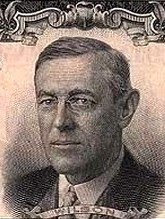This observation is lost on Charles R. Schwab, who has joined the campaign to reintroduce the uptick rule in his WSJ op-ed:
In the wake of the Great Depression, the uptick rule was established to eliminate manipulation and boost investor confidence. The rule said that short sales could be made only after the price of a stock had moved up (an "uptick") over the prior sale. This slowed the short selling process making it more expensive and limiting the ability of short sellers to manipulate stocks lower by piling on, driving the share price quickly down and quickly profiting from the downdraft they created.I expect that many of Mr. Schwab's customers find comfort in blaming manipulators for their poor performance in recent markets, and what businessman argues with his customers? But I say, why stop at half-measures? We could prohibit short-selling the way it's prohibited in China. Or better yet--we could prohibit selling altogether. Quoting Barton Biggs in Wealth, War & Wisdom:
[C]oncerned about the ebbing of confidence, the Nazi government imposed controls on stock prices for the remainder of World War II which concealed the damage. No German legally could sell shares without first offering them to Reichsbank, which had the option of buying them at December 1941 prices in exchange for government bonds, which remained in the bank's possession. Not exactly an attractive proposition, particularly since bond prices collapsed.

2 comments:
Why is only downside manipulation of concern? Don't tell me Chuck has never heard the phrase "painting the tape"!
My advisor in grad school used to say that teaching undergrad has more to do with theater than science. I suspect that Mr. Schwab's job has more to do with show business than investing.
Post a Comment